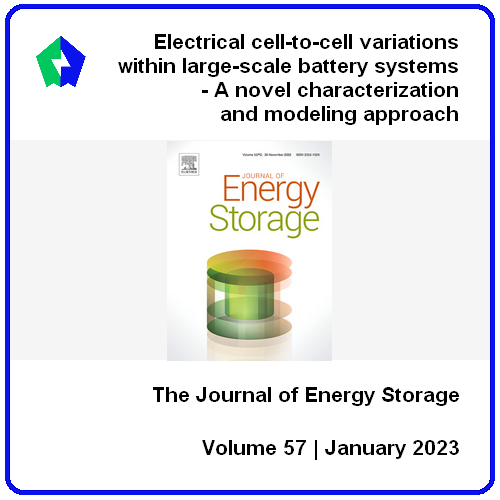On the way to the zero-emission target in shipping, battery systems in marine applications have drawn increasing interest in recent years.
For large-scale applications of battery systems in marine and stationary fields that are very demanding on the investment side, so-called digital twins have drawn increasing interest of research and industry. Digital twins might be used for purpose of predictive maintenance and optimization and usually rely on a system simulation model representing the electrical, thermal, ageing or inter-domain behaviour of the physical system. However, the performance and the reliability of large-scale battery systems are affected by cell-to-cell variations such as deviations of the internal resistance or capacity of the individual cells. Implementing these variations within a digital twin requires novel methods for characterization and modeling since current approaches are not suited for systems consisting of thousands of individual cells.
Including those cell-to-cell variations within a digital twin offers various advantages for model-based optimization and predictive maintenance for large-scale systems such as employed within the NAUTILUS project.
Read more about the novel characterization and modeling approach in the volume 57 of the Journal of Energy Storage (January 2023), the article has open access
By Alexander Reiter, Susanne Lehner, Oliver Bohlen and Dirk Uwe Sauer
#Batteries #DigitalTwin #Marine #SystemModeling #NAUTILUS_2020
This project has received funding from the European Union’s Horizon 2020 research and innovation program under grant agreement No 861647.
Stay in touch with us!
#NAUTILUS_2020 #propulsionsystem #sustainableshipping #battery #fuelcell #cruiseships
***
⇒ Follow us on Twitter/LinkedIn to be on board.
Follow #NAUTILUS_2020
NAUTILUS is a short for Nautical Integrated Hybrid Energy System for Long-haul Cruise Ships.

This project has received funding from the European Union’s Horizon 2020 research and innovation program under grant agreement No 861647.

